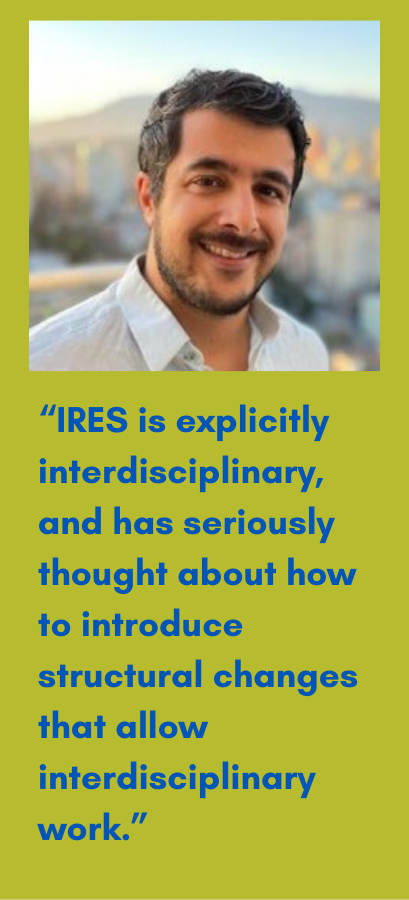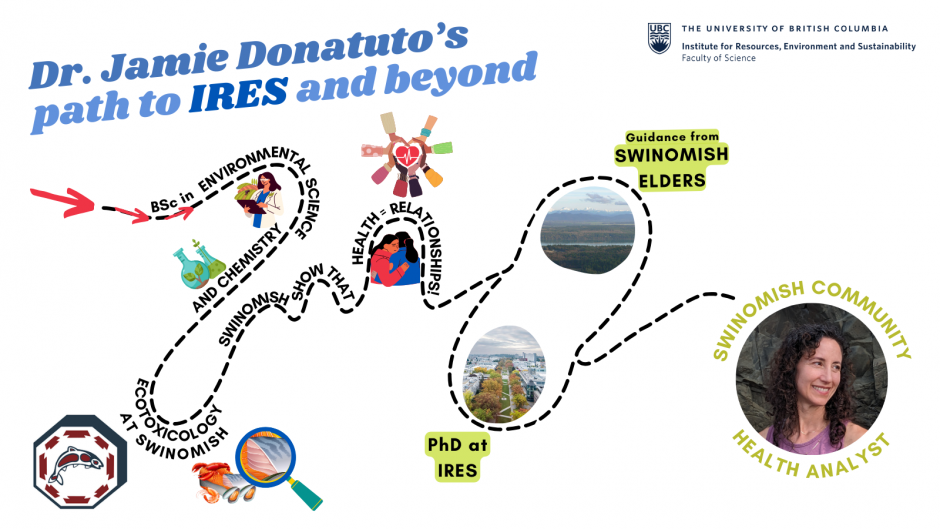IRES’s interdisciplinarity is driven by its students, says alum Sameer Shah
Sameer Shah graduated with a Ph.D. in 2021 under the supervision of Dr. Leila Harris, and he is now an Assistant Professor of Climate Adaptation and a John C. Garcia Professor at the University of Washington’s School of Environment and Forest Sciences. His research program develops critical, problem-focused, and solutions-oriented research at the intersection of climate change, water-energy-food security, sustainable livelihoods, and environmental governance.
What does Sameer remember about IRES? How did his experiences here shape his current skills? Read on to see what he had to say!
Question: Why did you choose to pursue your graduate studies at IRES?
Answer: When I finished my undergraduate degree, I was looking to continue a more interdisciplinary education, and I had known for a while that I wanted to do something at the intersection of global development and water security. My undergraduate advisor recommended that I reach out to Leila. After reaching out to Leila, some of my ideas started to crystallize. Ultimately, I think my decision was based on continuing my education and research in interdisciplinary environmental social sciences, but more specifically at the intersection of global development and water, and I thought Leila would be a great fit as my adviser.

Question: In what ways did your experiences at IRES help prepare you for what you do now?
Answer: IRES is explicitly interdisciplinary, and has seriously thought about how to introduce structural changes that allow interdisciplinary work. I bring that knowledge with me to my job now as an Assistant Professor at the University of Washington. Looking back at my time as a graduate student at IRES, I remember how my desk was in the shared student area with all the other RES students. I was always sitting near or next to someone who studied something different from me: wildlife conservation, psychology, biology, ornithology… You don’t get that fantastic mix often. A lot of new, interesting, interdisciplinary work is driven by students—students push the envelope a lot—and for all of us to be seated together only helped that. This structure helped me in several ways.
First, it opened me up to a lot of different ways in which people were trying to understand the world through their research by bringing in and drawing from different ideas in ways that aren’t present in other departments.
Second, RES graduate students sitting together truly made a world of difference because I was constantly soaking up new information. There were a lot of collaborations and a lot of things to add to my CV that would never have happened in a more “clustered” set-up.
Finally, because of that environment, I had to “network” everyday. I was learning how other people understand problems.
The other unique aspect about IRES that I learned from is problem-oriented research. I learned about conducting research by looking “out there” and trying to understand and bring the tools into those environments, rather than trying to cater to five or six people within one’s disciplinary home.
Question: How did you find employment after graduate school?
Answer: Finding employment after graduate school is about making sure you hear of positions that spread through word-of-mouth and trying to find your way into this dense network of updates. I started interviewing for faculty positions in the beginning of 2020, and I did one interview two or three weeks before the onset COVID, and then my next interview for a faculty position was about two years later! Through word-of-mouth I was able to find, interview and start a post-doc position at the University of Maryland Baltimore County in September 2021. For people who are job hunting after a PhD, I recommend that you get on as many listservs as possible, and to tell people that you are actively looking for a job. Start telling people, especially your faculty advisers, what you’re looking for.
Question: What is your current position and what questions are you working on?
Answer: I’m an Assistant Professor at the University of Washington in the School of Environment and Forest Sciences, and my position title is Assistant Professor of Climate Adaptation. When I began working with Leila in human environmental geography and political ecology, I studied the climate crisis through the lens of how impacts come to be unevenly distributed within our society. I still ask these kinds of questions. I’ve increasingly looked at climate solutions including climate adaptation, which pertains to how we are trying to reduce and adjust to the impacts of climate change in the systems that we rely on, like our food, energy and water systems.
A lot of my work has taken the shape of looking at when climate solutions go awry—when they can actually worsen climate risks, especially for marginalized groups. How do the solutions that we think can be so effective create potentially more severe adverse impacts?
At the moment, my group is finishing up one of the first studies looking at how adaptation solutions become maladaptive, or how they contribute to climate risk. We’ve studied almost 90 papers and examples across over 60 different countries trying to understand how these projects transitioned into something they weren’t supposed to be. We’re also interested in learning how to course-correct once this does happen.
Jamie Donatuto carries on knowledge from IRES and Swinomish communities

Dr. Jamie Donatuto graduated from our program with a PhD in 2008 and is now the manager of the Swinomish Community Environmental Health Program at the Swinomish Indian Tribal Community in the Coast Salish Nation. Her work includes researching chemicals and other toxicants in local traditional foods and tribal health-related impacts from climate change, launching an environmental health education program, and developing community-based Indigenous Health Indicators.
Donatuto explained that her real-world experiences right after receiving her undergraduate degree deeply influenced her. The Swinomish Indian Tribal Community (Coast Salish Nation, current day Washington State) hired her fresh out of undergrad (where she obtained a BS in environmental science/chemistry) to research toxics in locally harvested seafoods.
“In my first year at Swinomish, I rapidly realized that western science definitions of health and pollution are not universally held truths,” Donatuto said. “Swinomish saw health as relationships between humans (families), the more-than-humans (all other sentient beings) and the natural world.”
She spent the next decade working towards a more encompassing and accurate Swinomish definition of health (aka the Indigenous Health Indicators), embarking on a journey jointly at IRES and with the Swinomish community.
“Part of my journey included returning to university for my PhD at UBC’s IRES under the thoughtful supervisory guidance of Dr. Terre Satterfield and my Committee: Drs. Robin Gregory, Charles Menzies, Pat Cirone (U.S. EPA retired), and Hadi Dowlatabadi,” she said. “An equal part encompassed spending hours learning from and being guided by Swinomish Elders and knowledge holders, in particular Wanaseah Larry Campbell. All of my teachers pushed me to expand my vision, to question more deeply, and to thoroughly deliberate the research. Larry and his family taught me to listen deeply and embrace more than one way of knowing.”
Today, the IRES alumna remains committed to the work she began after her first degree:
“Twenty-four years later, I continue to work as the Swinomish Community Health Analyst. I am honored to carry on the knowledge shared with me by my teachers, both from UBC and from the Indigenous communities with whom I have had the honor to work.“
